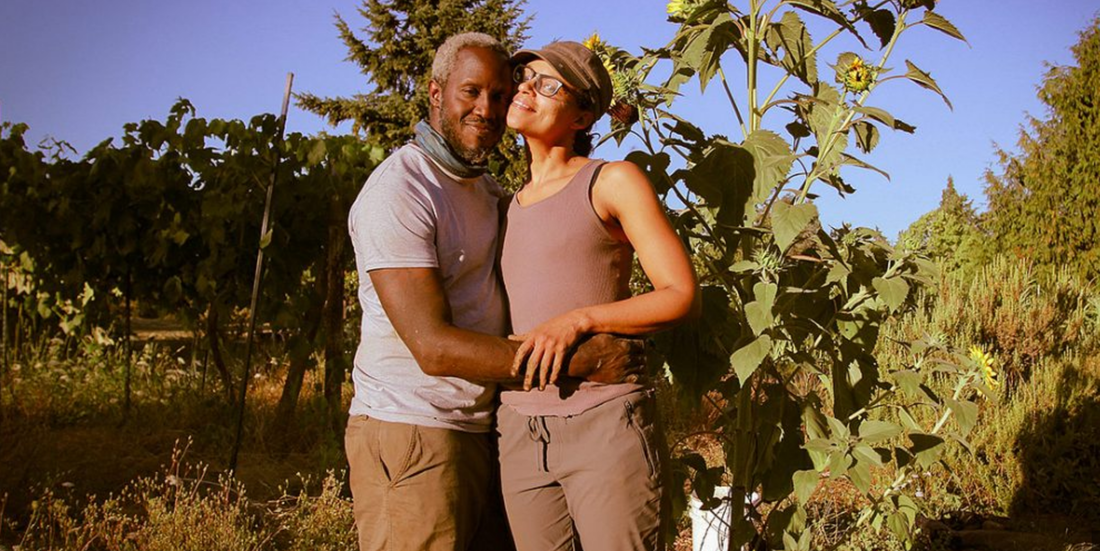“I felt a real connection to the land and asked what it would take for us to occupy it,”
“I felt a real connection to the land and asked what it would take for us to occupy it,”
A New Generation of Black Farmers Is Going Back to the LandBy going back to the land, Black farmers are resuming a journey toward “food sovereignty” that began centuries ago.
September 16, 2020
by Hannah Wallace When Malcolm Shabazz Hoover and Mirabai Collins broke ground on the Black Futures Farm in January, it was the first time either of them had farmed on their own. On their one-acre plot in Portland’s Brentwood-Darlington neighborhood, the couple — with the help of a few interns — grows everything from purple king pole beans and heirloom tomatoes (trellised on string so they’ll climb upwards) to delicata and patty-pan squash, corn, okra, cabbages and zucchinis.
“So many zucchinis. It might as well be a zucchini farm!” Mirabai laughs. They sell their produce via a small CSA program and several BIPOC farmers’ markets around town. Hoover and Collins are part of a new generation of Black farmers returning to the land to exercise their right to Black food sovereignty. Formally defined in 2007 at the Nyéléni Forum for Food Sovereignty in Mali, food sovereignty is the right of people to determine their own food and agricultural systems, and have healthy and culturally appropriate food produced through ecologically sound and sustainable methods. People who have food sovereignty reject the notion that food is a commodity, and support local farmers and food providers instead of large agri-businesses. Charlie Smith, co-director of the Portland-based Black Food Sovereignty Coalition, puts it more succinctly: “Food sovereignty is people, place and economic opportunities.” Hoover, 50, found his way to farming almost by accident. A U.S. Navy veteran, he worked in city government and as a school teacher in Oakland before taking a job at the Oregon Food Bank in 2017. Adjacent to the Food Bank was a farm named Unity Farm run by Art Shavers and Shantae Johnson. During his breaks, Hoover would walk over and chat with them, and help them weed when they asked him to. “Bro, we love talking to you, but this is hard work,” Hoover remembers Shavers saying. “If you’re going to be out here, you need to help.” Though both his parents had grown up on farms, it wasn’t until these afternoons spent digging in the soil with his friends that Hoover realized how therapeutic gardening could be. He was hooked. Hoover also works at Impact NW, a homelessness nonprofit with offices across the street from a 13-acre farm. “I felt a real connection to the land and asked what it would take for us to occupy it,” says Hoover. With the help of the Black Food Sovereignty Coalition, who provided advice and infrastructure, Collins and Hoover took over stewardship of one of the 13 acres, and Black Futures Farm was born. Content from Reasons to be cheerful
|
We envision a world in which people treat each other with respect and kindness, where we consider the Earth to be our home to care for and to enjoy. And we see that this world is in the process of emerging.
Positive News is a reflection of this widespread movement and tells its powerful stories. Vertical Divider
|
|
|

